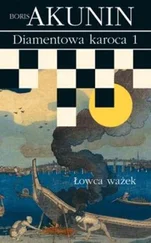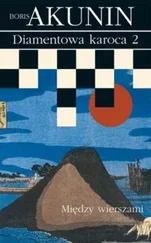He spoke the prearranged words:
‘A hundred thousand pardons. May I ask for the honourable Ivan Konstantinovich to come to the phone?’
After a second’s pause, a woman’s voice replied:
‘He’s not here at present, but he will be soon.’
That meant Thrush was in Moscow and prepared to meet.
‘Please be so good as to let Ivan Konstantinovich know that Professor Stepanov wishes to invite him to his seventy-third birthday.’
‘Professor Stepanov?’ the woman asked, bemused. ‘To his seventy-third?’
‘Yes, that is correct.’
The go-between didn’t need to understand the meaning, her job was to pass on precisely what he said. In the figure 73, the first numeral indicated the time, and the second was a position in a list of previously agreed meeting places. Thrush would understand: at seven o’clock, at place number 3.
If anybody had eavesdropped on Rybnikov’s conversation with the man from Krasnoyarsk, he probably would not have understood a thing.
‘More account books?’ asked Tunnel, a sturdy man with a moustache and eyes that were constantly half closed. ‘We should raise the price. Everything’s so expensive nowadays.’
‘No, not books,’ said Vasilii Alexandrovich, standing in the middle of the cheap hotel room and listening carefully to the footsteps in the corridor. ‘A special delivery. Payment too. Fifteen hundred.’
‘How much?’ the other man gasped.
Rybnikov pulled out a bundle of banknotes.
‘There. You’ll receive the same again in Khabarovsk. If you do everything right.’
‘Three thousand?’
The Krasnoyarsk man’s eyebrows twitched and twitched again, but they didn’t rise up on to his forehead. It’s not easy to gape in astonishment with eyes used to watching the world through a peephole.
The man whom Vasilii Alexandrovich had christened Tunnel had no idea about this nickname, or about the real activities of the people who paid for his services so generously. He was convinced that he was assisting illegal gold miners. The ‘Statute on Private Gold-Mining’ required prospecting cooperatives to hand over their entire output to the state in exchange for so-called ‘assignations’ at a price lower than the market level and with all sorts of other deductions into the bargain. And everybody knew that when the law was unjust or irrational, people found ways to get round it.
Tunnel occupied a post that was extremely useful to the Organisation – he escorted the postal wagons along the Trans-Siberian main line. When he carried notebooks filled with columns of figures from the European part of the empire to the Far East and back, he assumed that this was financial correspondence between the miners and the dealers in black-market gold.
But Rybnikov had fished the postman out of his own cunning little notebook for a different purpose.
‘Yes, three thousand,’ he said firmly. ‘And no one pays money like that for nothing, you know that.’
‘What do I have to carry?’ asked Tunnel, licking his lips, which had turned dry with excitement.
Rybnikov snapped:
‘Explosive. Three pood s.’
The postman started blinking, thinking it over. Then he nodded.
‘For the diggings? To smash the rocks?’
‘Yes. Wrap the crates in sackcloth, like packages. Do you know tunnel No. Twelve on the Baikal Bypass Line?’
‘The “Half-Tunnel”? Everyone knows that.’
‘Throw the crates off exactly halfway through, at marker 197. Our man will pick them up afterwards.’
‘But … er, won’t it go off bang?’
Rybnikov laughed.
‘It’s obvious you know nothing about using explosives. Haven’t you ever heard of detonators? Go off bang – don’t talk nonsense.’
Satisfied with this reply, Tunnel spat on his fingers, preparing to count the money, and Vasilii Alexandrovich smiled to himself: It won’t go off bang, it will make a boom that sets the Winter Palace shaking. Then just let them try to rake out the smashed rock and drag out the flattened wagons and locomotive.
The Baikal Bypass Tunnel, which had been built at huge expense and opened only recently, ahead of schedule, was the final link in the Trans-Siberian. The military trains used to line up in immense queues at the Lake Baikal ferry crossing, but now the line pulsated three times faster than before. The Half-Tunnel was the longest one on the line; if it was put out of action, the Manchurian army would be back on short rations again.
And that was only half of Rybnikov’s dual ‘project’.
The second half was to be implemented by the man staying at the Kazan Hotel, with whom Vasilii Alexandrovich spoke quite differently – not curtly and abruptly, but soulfully, with compassionate restraint.
He was a man still quite young, with a sallow complexion and protruding Adam’s apple. He made a strange impression: the subtle facial features, nervous gesticulations and spectacles fitted uncomfortably with the worn pea jacket, calico shirt and rough boots.
The man from Samara coughed up blood and was in love, but his feelings were not requited. This made him hate the whole world, especially the world close to him: the people around him, his native city, his own country. There was no need for secrecy with him – Bridge knew who he was working for and he carried out his assignments with lascivious vengefulness.
Six months earlier, on the instructions of the Organisation, he had left university and taken a job as a driver’s mate on the railway. The heat of the firebox was consuming the final remnants of his lungs, but Bridge was not clinging to life, he wanted to die as soon as possible.
‘You told our man that you wish to go out with a bang. I’ll give you the opportunity to do that,’ Rybnikov declared in ringing tones. ‘This bang will be heard right across Russia, right round the world, in fact.’
‘Tell me, tell me,’ the consumptive said eagerly.
‘The Alexander Bridge in Syzran …’ said Rybnikov, and paused for effect. ‘The longest in Europe, seven hundred sazhen s. If it is sent crashing into the Volga, the main line will come to a halt. Do you understand what that means?’
The man he called Bridge smiled slowly.
‘Yes, yes. Collapse, defeat, disgrace. Surrender. You Japanese know where to strike! You deserve the victory!’ The former student’s eyes blazed brightly and he spoke faster and faster with every word. ‘It can be done! I can do it! Do you have powerful explosive? I’ll hide it in the tender, under the coal. I take one slab into the cabin. I throw it in the firebox, it explodes, fireworks!’
He burst into laughter.
‘On the seventh span,’ Rybnikov put in gently. ‘That’s very important. Otherwise it might not work. On the seventh, don’t get that wrong.’
‘I won’t! I go on duty the day after tomorrow. A goods train to Chelyabinsk. The driver will get what’s coming to him, the bastard, he’s always sneering at my cough, calls me “Tapeworm”. I feel sorry for the stoker, though, he’s only a young boy. But I’ll get him off. At the last station I’ll catch his hand with the shovel. Tell him never mind, I’ll shovel the coal myself. But what about our deal?’ Bridge exclaimed with a sudden shudder. ‘You haven’t forgotten about our deal?’
‘How could we?’ asked Rybnikov, setting his hand to his heart. ‘We remember. Ten thousand. We’ll hand it over exactly as you instructed.’
‘Not hand it over, drop it off,’ the sick man cried out nervously. ‘And the note: “In memory of what might have been”. I’ll write it myself, you’ll get it wrong.’
And he wrote it there and then, splattering ink about.
‘She’ll understand … And if she doesn’t, so much the better,’ he muttered with a sniff. ‘Here, take it.’
Читать дальше









